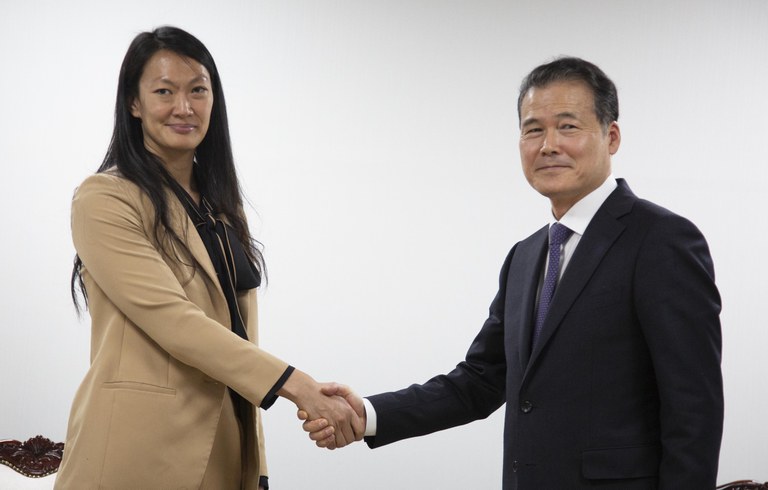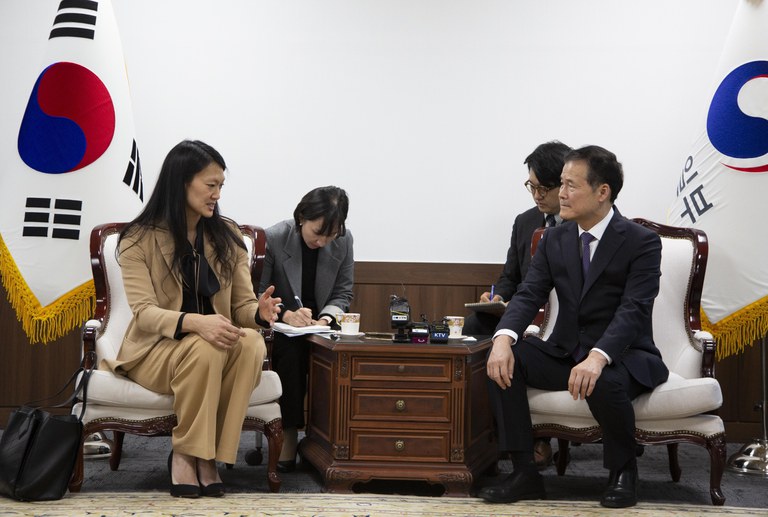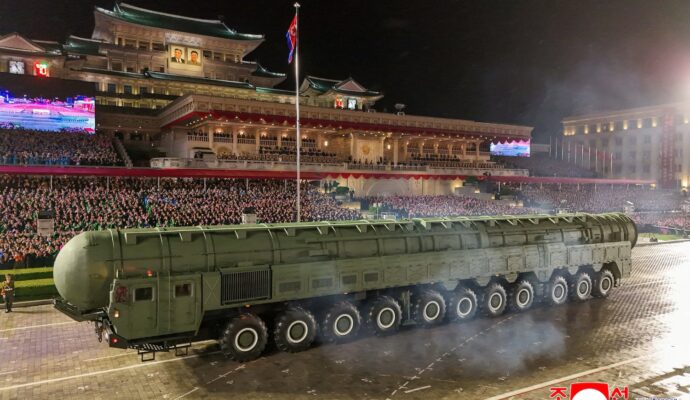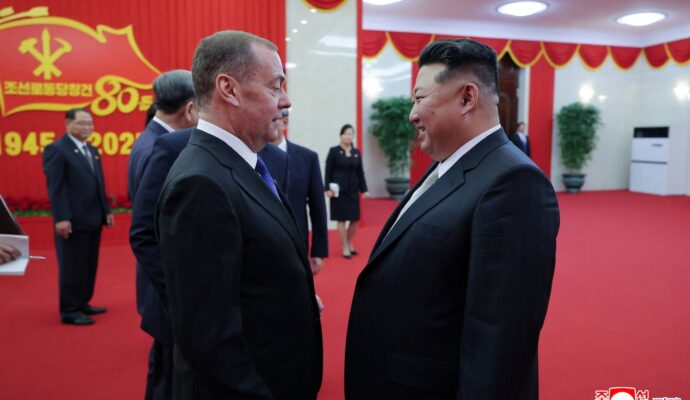Updated Oct. 18, 2023, at 10:15 a.m. ET
U.S. President Joe Biden’s special envoy for North Korea human rights offered what appeared to be a two-pronged approach aimed at improving the human rights situation in North Korea, underscoring Washington’s firm commitment to use various means to bring about change.
“The United States government very much wants to work with you to make concrete changes and improvements in the human rights situation,” Julie Turner told Radio Free Asia on Wednesday, in remarks directed to the North Korean regime.
In an exclusive interview held at the U.S. Embassy in Seoul, the special envoy said Washington was “ready to, if the opportunity exists, look for ways in which we can assist you [the North Korean regime] in achieving those goals.”
Whether North Korea is willing to pick up that olive branch is another matter. Since the Trump administration’s direct engagement with Kim Jong Un over its nuclear weapons program hit a wall in 2019, Pyongyang has been reluctant to engage with Washington which has maintained stiff sanctions against the North.
Turner, who only took up her position as human rights envoy last week, signaled a willingness to engage. The approach is endorsed by some experts who say that engagement with Pyongyang, and not just pressure tactics like sanctions, will be required to bring about change.

Turner, a veteran diplomat who began her inaugural three-day visit to Seoul on Monday, also directly conveyed her message to the North Korean people: Washington holds deep concerns for their well-being.
“The United States government does care deeply for your welfare, and your rights,” Turner said. “We are working diligently through the various mechanisms that we have available to hopefully make concrete improvements, so that one day, the North Korean people can also enjoy the same rights that Koreans in South Korean and Korean diasporas in the United States are able to enjoy.”
Gross human rights violations
The North has long been under international scrutiny for its alleged human rights violations. In 2014, a U.N. commission of inquiry found evidence of gross rights violations including crimes against humanity. That inquiry and testimony of people who have fled North Korea point to the existence of political prison camps, public executions, and the widespread use of torture.
North Korea has consistently denied these allegations, dismissing them as propaganda against its regime’s security.
Human Rights Watch reported last week that Chinese authorities had forcibly repatriated over 500 North Koreans. The organization urged governments worldwide to condemn Beijing’s actions. Most of these North Koreans were civilians and religious figures who were arrested while attempting to travel to South Korea from China, RFA has learned.
Turner said she was committed to working with the international community – a move that may be interpreted as a possibility to apply a controlled pressure to materialize meaningful change in North Korea.
“I will plan to continue to engage both with the General Assembly Third Committee, as well as the Human Rights Council, and the various special rapporteurs and special procedures that have a mandate that focuses on repatriations, refoulement, refugees, and in other instances of enforced disappearances,” she said.

During the interview, Turner also reaffirmed her commitment to reestablish the “consultative body” with South Korea to be “outcome-oriented.” The U.S. and South Korea agreed in collaborating to resume discussions through the body, aimed at more effectively addressing Pyongyang’s human rights situation, as stated by the South’s foreign ministry on Tuesday. The consultative body was set up in 2016 during the administration of the disgraced leader Park Geun-hye.
“I want to make sure, and I understand from my South Korean government counterparts, that the purpose of these consultations will be outcome-oriented,” Turner said. “Both the Ministry of Foreign Affairs and the Ministry of Unification, and [during] my meetings this week, we talked about concrete steps that we could take to make improvements in the human rights situation in North Korea.”
Turner did not elaborate on what specific goal she was targeting within the consultative framework, but added that she hopes to see the re-launch of the body by the end of this year.
The human rights envoy position that Turner holds had been vacant since 2017 until she took office last week.
With nearly two decades of service in the Bureau of East Asian and Pacific Affairs, Turner had served as the director of the Office of East Asia and the Pacific in the Bureau of Democracy, Human Rights, and Labor. Additionally, she held the role of director for Southeast Asia at the United States National Security Council.
Edited by Elaine Chan and Taejun Kang
Updates with background information and edits.

